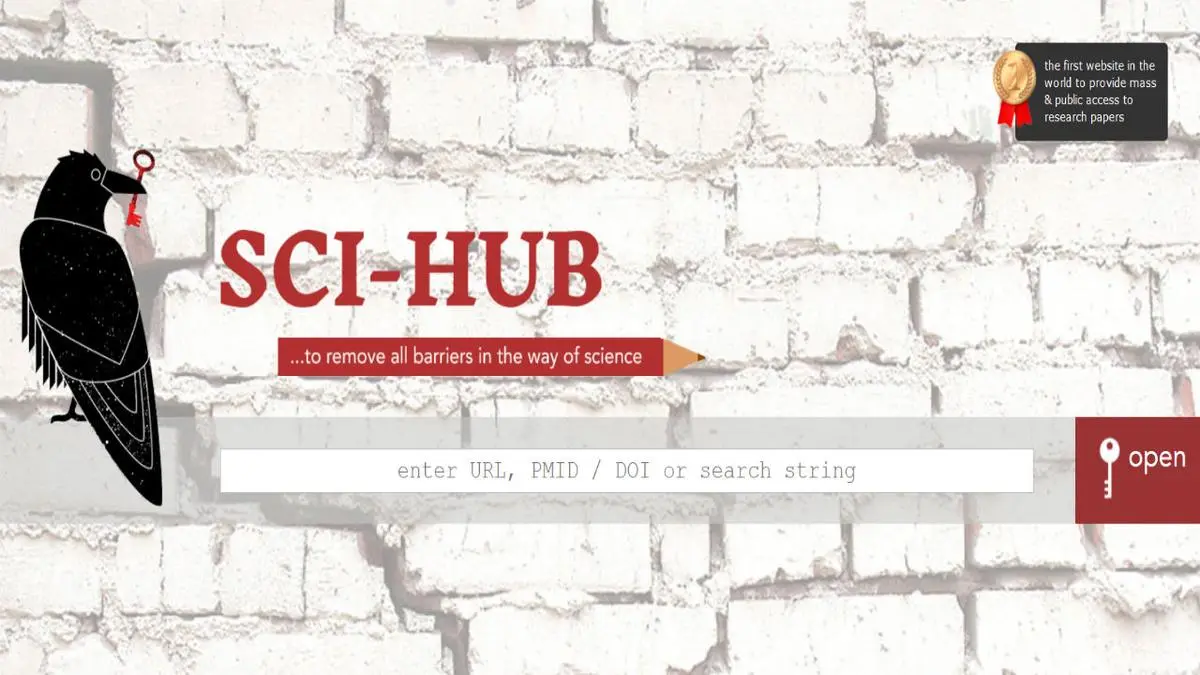Science
Activists Challenge Academic Publishing’s Control Over Knowledge

The ongoing battle over access to academic knowledge has intensified, with activists and researchers challenging the dominance of major publishing corporations like Elsevier. With the rise of platforms such as Sci-Hub and Library Genesis, many are questioning who truly owns knowledge in an increasingly digital world.
In the early days of this movement, the late Aaron Swartz co-authored the Guerrilla Open Access Manifesto in July 2008, arguing that access to scientific and cultural heritage should not be restricted by financial barriers. Swartz, a noted hacktivist and co-founder of Demand Progress, faced serious legal repercussions for his activism. In 2011, he was charged with multiple felonies under the Computer Fraud and Abuse Act for downloading articles from JSTOR, a subscription database, using the Massachusetts Institute of Technology’s network. This led to a potential prison sentence of up to fifty years, culminating in his tragic death in January 2013.
While Swartz’s legacy has inspired many, others have taken up the mantle more recently. Kazakh programmer Alexandra Elbakyan founded Sci-Hub in 2011 to provide free access to millions of academic papers. In a 2017 letter responding to a lawsuit, she highlighted the plight of students in developing countries who face steep fees for accessing vital research. “Payment of $32 is just insane when you need to skim or read tens or hundreds of these papers to do research,” she wrote, emphasizing the need for equitable access to knowledge.
The legal landscape surrounding such initiatives has been fraught with challenges. In 2015, Elsevier filed a lawsuit against Elbakyan for copyright infringement, claiming that her actions circumvented university proxy systems. This was followed by a series of legal battles, resulting in default judgments against Sci-Hub and Libgen, with the courts awarding $15 million and $4.8 million in damages, respectively. Despite these rulings, both platforms continue to operate, demonstrating the growing demand for accessible academic resources.
The academic publishing industry is a multi-billion dollar enterprise, with profit margins that often exceed those of major corporations like Amazon and Google. Reports indicate that companies like Elsevier and Wiley enjoy profit margins of 37 percent and 35 percent, respectively. This has led to increasing criticism from scholars who feel exploited by a system that profits from publicly funded research.
As students and researchers grapple with limited access to journals, many have turned to Sci-Hub and Libgen out of necessity. A study revealed that over half of researchers use piracy sites to obtain research materials. For instance, Ankush Pal, a graduate student at the London School of Economics, recalls struggling to access necessary articles during his undergraduate studies. “I often posted requests on social media, hoping someone would email me the articles I needed,” he shared.
The situation highlights a broader issue: the inequity in access to academic resources. Prestigious institutions in India, such as Jawaharlal Nehru University and Jamia Millia Islamia, often have limited journal subscriptions. As funding cuts affect library resources, students are left searching for alternative means to access research.
Calls for reform are gaining traction, especially as the Indian government announced the “One Nation One Subscription” (ONOS) scheme in November 2024. This initiative aims to provide access to over 13,000 scholarly journals through a single subscription, but it primarily benefits public-funded institutions. Critics argue that it does not adequately address the needs of independent researchers or students at private institutions.
Recent international efforts to advocate for open access are also underway. Initiatives like Plan S in Europe mandate that publicly funded research must be published in open-access journals. Similarly, the National Institutes of Health in the United States requires researchers funded by the agency to submit their work to PubMed Central for public access.
The future of academic publishing remains uncertain, as the tension between profit-driven models and the demand for open access continues to escalate. Activists and researchers are calling for systemic changes to ensure that knowledge remains a shared resource, accessible to all. As the landscape evolves, the question looms large: who will ultimately control access to knowledge?
-

 World5 months ago
World5 months agoSBI Announces QIP Floor Price at ₹811.05 Per Share
-

 Lifestyle5 months ago
Lifestyle5 months agoCept Unveils ₹3.1 Crore Urban Mobility Plan for Sustainable Growth
-

 Science4 months ago
Science4 months agoNew Blood Group Discovered in South Indian Woman at Rotary Centre
-

 World5 months ago
World5 months agoTorrential Rains Cause Flash Flooding in New York and New Jersey
-

 Top Stories5 months ago
Top Stories5 months agoKonkani Cultural Organisation to Host Pearl Jubilee in Abu Dhabi
-

 Sports4 months ago
Sports4 months agoBroad Advocates for Bowling Change Ahead of Final Test Against India
-

 Science5 months ago
Science5 months agoNothing Headphone 1 Review: A Bold Contender in Audio Design
-

 Top Stories5 months ago
Top Stories5 months agoAir India Crash Investigation Highlights Boeing Fuel Switch Concerns
-

 Business5 months ago
Business5 months agoIndian Stock Market Rebounds: Sensex and Nifty Rise After Four-Day Decline
-

 Sports4 months ago
Sports4 months agoCristian Totti Retires at 19: Pressure of Fame Takes Toll
-

 Politics5 months ago
Politics5 months agoAbandoned Doberman Finds New Home After Journey to Prague
-

 Top Stories5 months ago
Top Stories5 months agoPatna Bank Manager Abhishek Varun Found Dead in Well









